DIY stands for Do it yourself.
Contents
DIY may also refer to:
DIY stands for Do it yourself.
DIY may also refer to:

"Do it yourself" ("DIY") is the method of building, modifying, or repairing things by oneself without the direct aid of professionals or certified experts. Academic research has described DIY as behaviors where "individuals use raw and semi-raw materials and parts to produce, transform, or reconstruct material possessions, including those drawn from the natural environment ". DIY behavior can be triggered by various motivations previously categorized as marketplace motivations, and identity enhancement.

Peter Brian Gabriel is an English singer, songwriter and human rights activist. He was the original lead singer of the progressive rock band Genesis. After leaving the band in 1975, he launched a solo career with "Solsbury Hill" as his first single. His fifth studio album, So (1986), is his best-selling release and is certified triple platinum in the UK and five times platinum in the US. The album's most successful single, "Sledgehammer", won a record nine MTV Awards at the 1987 MTV Video Music Awards and, according to a report in 2011, it was MTV's most played music video of all time.
The cassette culture refers to the practices associated with amateur production and distribution of music and sound art on compact cassette that emerged in the mid-1970s. The cassette was used by fine artists and poets for the independent distribution of new work. This article focuses on the independent music scene associated with the cassette that burgeoned internationally in the second half of the 1970s.
Anarcho-punk is an ideological subgenre of punk rock that promotes anarchism. Some use the term broadly to refer to any punk music with anarchist lyrical content, which may figure in crust punk, hardcore punk, folk punk, and other styles.

The Fairlight CMI is a digital synthesizer, sampler, and digital audio workstation introduced in 1979 by Fairlight. It was based on a commercial licence of the Qasar M8 developed by Tony Furse of Creative Strategies in Sydney, Australia. It was one of the earliest music workstations with an embedded sampler and is credited for coining the term sampling in music. It rose to prominence in the early 1980s and competed with the Synclavier from New England Digital.
Glory may refer to:
Robert Alan Ezrin is a Canadian music producer and keyboardist, best known for his work with Lou Reed, Alice Cooper, Aerosmith, Kiss, Pink Floyd, Deep Purple, Peter Gabriel, Andrea Bocelli and Phish. As of 2010, Ezrin's career in music had spanned four decades and his production work continued into the 21st century, with acts such as Deftones and Thirty Seconds to Mars. Ezrin is the winner of three Juno Awards. In 2011, he was awarded the Special Achievement Award at the 2011 SOCAN Awards held in Toronto. On 29 December 2022, Ezrin was named an Officer of the Order of Canada, the second-highest civilian honour in Canada.
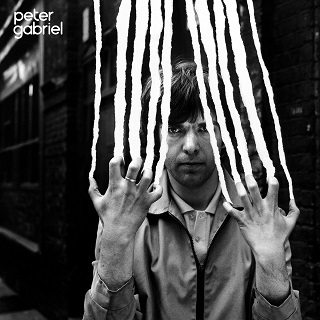
Peter Gabriel is the second studio album by English singer-songwriter Peter Gabriel, released on 2 June 1978 by Charisma Records. Gabriel started recording the album in November 1977, the same month that he had completed touring in support of his debut solo release. He employed former King Crimson guitarist Robert Fripp, who was part of Gabriel's early touring band, to produce the album and incorporated his use of Frippertronics effects on the co-written "Exposure".
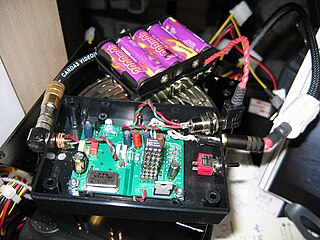
DIY Audio, do it yourself audio. Rather than buying a piece of possibly expensive audio equipment, such as a high-end audio amplifier or speaker, the person practicing DIY Audio will make it themselves. Alternatively, a DIYer may take an existing manufactured item of vintage era and update or modify it. The benefits of doing so include the satisfaction of creating something enjoyable, the possibility that the equipment made or updated is of higher quality than commercially available products and the pleasure of creating a custom-made device for which no exact equivalent is marketed. Other motivations for DIY audio can include getting audio components at a lower cost, the entertainment of using the item, and being able to ensure quality of workmanship.
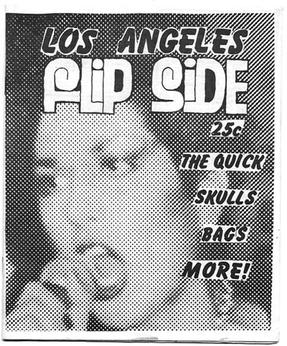
Flipside, known as Los Angeles Flipside Fanzine, was a punk zine published in Whittier and Pasadena, California, from 1977 to 2002. The magazine was associated with its own record label, Flipside Records, releasing vinyl records and compact discs beginning in 1978.
The Desperate Bicycles were an English punk band from London formed in 1977. They released a series of independent recordings through their own label Refill Records in the late 1970s, encouraging and inspiring many other bands to do likewise. The Desperate Bicycles pioneered the do-it-yourself ethic of punk, adopting a proselytising role exemplified by their ardent exhortation: "it was easy, it was cheap – go and do it!". The group have been described as "DIY's most fervent evangelists".

María de los Ángeles de las Heras Ortiz, better known as Rocío Dúrcal, was a Spanish singer and actress with a career spanning more than four decades. She performed pop music, bolero, mariachi and romantic ballads and is widely regarded as one of the greatest Spanish singers of all time. Popular across Mexico and Latin America, she earned the sobriquet of Reina de las Rancheras.
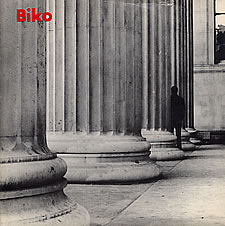
"Biko" is an anti-apartheid protest song by English rock musician Peter Gabriel. It was released by Charisma Records as a single from Gabriel's eponymous third album in 1980.

Lo-fi is a music or production quality in which elements usually regarded as imperfections in the context of a recording or performance are present, sometimes as a deliberate choice. The standards of sound quality (fidelity) and music production have evolved over the decades, meaning that some older examples of lo-fi may not have been originally recognized as such. Lo-fi began to be recognized as a style of popular music in the 1990s, when it became alternately referred to as DIY music. Some subsets of lo-fi music have become popular for their perceived nostalgic and/or relaxing qualities, which originate from the imperfections that define the genre.
Do It Yourself may refer to:
Garden Wall was a band from Charterhouse School in Surrey that went on to merge with the remains of another band from the same school, Anon, to form the progressive rock band Genesis in 1967. The band was formed around May 1965 and consisted of Peter Gabriel (vocals), Tony Banks (keyboards) and Chris Stewart (drums).

Emit Snake-Beings is a British/New Zealand writer multi-media visual artist and sound artist who has also worked in kinetic art, DIY ethos, DIY technology, sculpture, cinematography, and video editing. He has a master's degree from the University of Waikato, and in 2016 was awarded a PhD, entitled The DiY ['Do it yourself'] Ethos: A participatory culture of material engagement for his work linking the DIY ethic and Maker culture with contemporary theory of material agency and Material culture. Recent publications have focused on developing an idea of techno-animism and ethnographic studies of technology.
DIY networking is an umbrella term for different types of grassroots networking, such as wireless community network, mesh network, ad-hoc network, stressing on the possibility that Wireless technology offers to create "offline" or "off-the-cloud" local area networks (LAN), which can operate outside the Internet. Do it yourself (DiY) networking is based on such Wireless LAN networks that are created organically through the interconnection of nodes owned and deployed by individuals or small organizations. Even when the Internet is easily accessible, such DiY networks form an alternative, autonomous option for communication and services, which (1) ensures that all connected devices are in de facto physical proximity, (2) offers opportunities and novel capabilities for creative combinations of virtual and physical contact, (3) enables free, anonymous and easy access, without the need for pre-installed applications or any credentials, and (4) can create feelings of ownership and independence, and lead to the appropriation of the hybrid space in the long-run.
Peter Loveday is an Australian singer-songwriter.
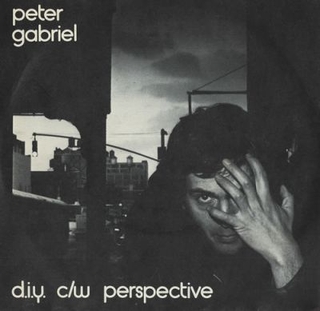
"D.I.Y." is a song written and recorded by English musician Peter Gabriel. It was included on his 1978 self-titled solo album and was released as a single in May with "Perspective" as a B-side, although it failed to chart. A re-recorded version of "DIY" was issued by Charisma Records in September 1978 with both "Mother Of Violence" and "Me And My Teddy Bear" as the B-side; this single fared no better than the original. The re-recording of "D.I.Y.", which featured horns and an additional chorus, was later included on the 2019 compilation album Flotsam and Jetsam. The D.I.Y. acronym stands for do it yourself, which at the time echoed the prevailing attitude of self-sufficiency in the UK. Peter Christopherson created the single artwork.